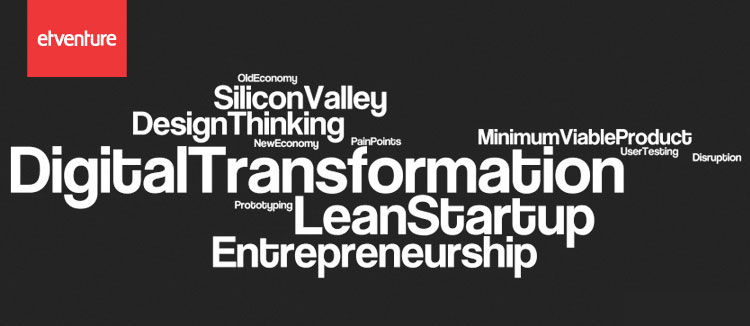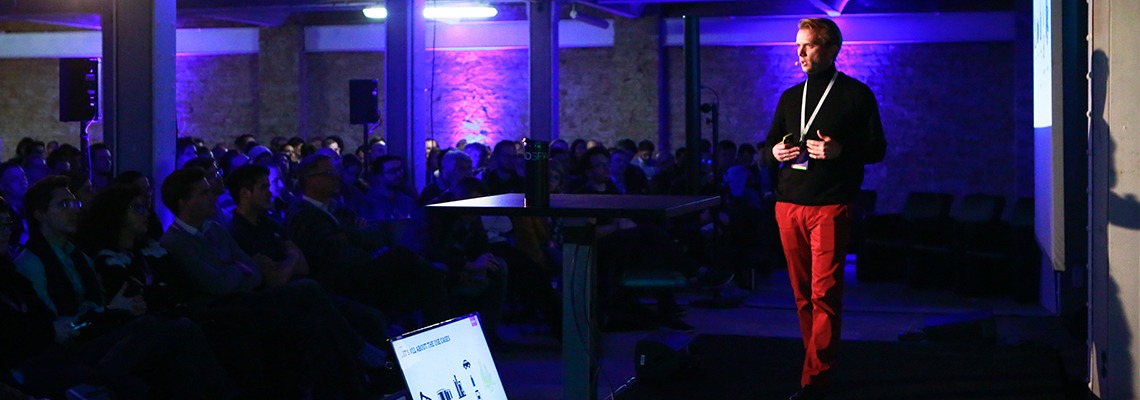From digitization and digital transformation – an overview of the most important subjects of the month of March
01. April 2016
As we do every month, we will provide you with an overview of the top subjects in the media in the areas of digital business and digital transformation. This time, the key subjects are: Automated driving in the railroad industry; Bitkom’s CEO is critical of the limited digital transformation in the company; the CSU and SPD are pulling together in the area of digitization; and Estonia as a pioneer for digital management. In March, the crux of the matter for digitization was also the CeBIT, which took place under the motto d!comony for the first time this year and in doing so wants to portray itself as more than a purely IT-oriented fair.
Deutsche Bahn CEO Grube on the topic of digitization: “Our app is the most successful in Europe” (Handelsblatt Magazine)
The subject of autonomous driving is not just on the mind of the automobile industry. The rail industry is also working on advancing automated driving, promised Bahn CEO Rüdiger Grube recently in an interview with Handelsblatt at the CeBIT in Hannover. Grube views Deutsche Bahn as a benchmark company in terms of digitization. “We are investing large sums in digitization every day. We now have four labs and over 260 digitization projects. And the number is growing by the day,” Grube explains to Handelsblatt. The central subjects are mobility, infrastructure, logistics, the working world and production.
Announcements such as automated driving on rails cause resistance among workers – as in other sectors – if it has to do with digitization and jobs. “It’s understandable that the train drivers are worried about their jobs,” says Grube as well. However, it’s completely unjustified. “The train driver of the future will also have be a qualified dispatcher. He has an extremely complex and responsible task. We don’t need fewer train drivers, we actually need more.” Finally, Grub also sees no other alternative than digitization: “These days, you are no longer perceived as a modern company if you don’t feel comfortable with digitization.”
CeBIT: Bitkom pushes for faster digitization (Spiegel Online)
Digital era. Digital revolution. Digital world. Three descriptions, one meaning: Digital change is not around the corner, we are right in the middle of it. It is even more astonishing that the digitization process is still in the initial stages in many companies. This is why Bernhard Rohleder is sounding the alarm. The Chief Executive Officer of Bitkom is critical of the disappointing level of digitization in companies. This starts in the area of communication. According to a survey conducted by Bitkom, 79 percent of German companies communicate frequently or very frequently by fax. Admittedly, managers would know that digitization is important for their company, but not how to implement it. “The biggest problem we will have to deal with in the future is the lack of specialists with the required technological and digital competence,” says Rohleder.
The Bitkom CEO’s assessment is also confirmed by the survey of Germany that etventure recently carried out with the assistance of GfK Nuremberg. The recently founded Unternehmer-Schmiede, a joint venture between etventure and the HR and company consultant Kienbaum, is starting to focus on the biggest difficulty: the lack of specialist staff for the implementation of digitization procedures. As the candidates with the required expertise are almost non-existent on the employment market, they are developed by the Unternehmer-Schmiede with targeted coaching into “digital entrepreneurs.”
Dobrindt is committed to an open internet for everyone (FAZ) / Gabriel’s call for digitization is out of touch with reality (Wirtschaftswoche magazine)
It is a well-known fact that there is not only a backlog demand in the matter of digitization in German companies but also in politics and administration. Now, Alexander Dobrindt, Federal Minister of Transport and Digital Infrastructure, is also pushing for improvements: “We require an open WLAN with easy access for everyone.” With this statement, Dobrindt is not only criticizing the disputed liability as a co-liable partner which always makes providers in this country who offer free networks liable but is also taking the side of the SPD at the same time. The expansion of broadband in Germany must also be accelerated in the future.
Federal Minister for the Economy, Sigmar Gabriel, has also recently expressed his opinion on the subject. With the help of a multi-billion-dollar ten-point plan, the Federal Government of Germany intends to transform the country into the most modern industrial location in the world, said Gabriel at the CeBIT. Wiwo Editor, Kerstin Dämon, has a definite opinion on this objective. “Gabriel’s call for digitization is out of touch with reality”, is the title of her commentary, and she clearly states: “There needs to be a change of culture.” Even if the required infrastructure is available, digitization requires companies to change their way of thinking and approach problems in a completely different manner. Instead of typical German perfectionism and clear structures, flexibility and agility will be required in the future. “And as long as this hasn’t taken root in people’s heads, then the Federal Minister for the Economy can demand digitization as much as he likes.”
Digitization of administration: From online forms to state Big Data? (Netzpolitik.org)
Digitization should not only make work easier but also our day-to-day life. How about being able to complete a tax return online in 5 minutes? Who wouldn’t be in favor of that? The fact that this is possible today is being proven by Estonia(more on the subject in our blog entry “Master challenges, use chances”). The northern-most country in the Baltic is being referred to as “e-Stonia”. Estonian citizens only have to transmit their data once. It is then exchanged digitally between the authorities. All of this is taking place in Estonia – not without good reason – under the buzzword “Service orientation”, “As a client of the state authorities, the tax-paying citizen requests an adjustment to internet-based reality.”
Germany now also wants to follow this example: In the future, record maintenance, communication and payments should take place digitally in the country. This was laid down in an e-government law by the German parliament and Federal Assembly in 2013. “However, the flipside of the Big Data medal is also being considered.” Digitized administration also means more data for the state. It’s clear: With the increasing digitization, the challenges for IT safety and personal anonymity are growing. “The statutory guidelines for the digitization of the states in Germany are, on the other hand, clear: Efficiency and easier bureaucracy are desirable; however, data protection and privacy take priority.”





* Required field